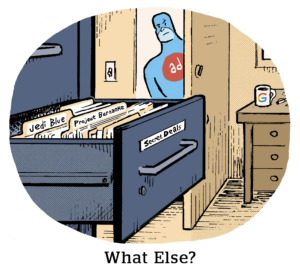MTA is dead, long live MMM. And also vice versa.
Because there’s value in both approaches. They’re better when used together, said Todd Morris, CEO of location data and measurement company InMarket.
And Morris is willing to bet on that.
On Monday, InMarket acquired ChannelMix, a marketing analytics startup primarily focused on media mix modeling. Morris declined to share terms, but he said that all of ChannelMix’s 25 employees are coming on board, bringing InMarket’s total headcount to just under 340.
InMarket already has a multitouch attribution solution of its own, which brands can use to connect campaign performance to in-store sales and foot traffic. But this only paints a picture of what’s happening at the bottom of the funnel.
Brands also need to know how their media performs across channels to effectively calibrate their budgets. MMM is good for that, but historically it’s an expensive and slow process.
“Marketers are increasingly accountable, and that means they can’t wait weeks or months, which is what it can take – they need to know way more quickly,” Morris said.
MMM, but faster
ChannelMix will help InMarket zoom in or out, whether marketers want a long-term view across channels or a near-term view tied to sales.
Morris referred to this new capability as “marketing impact modeling.”
In partial translation from the jargon, it involves pulling in data from multiple sources via API and using an AI model to analyze historical trends and predict marketing performance by channel, audience segment and creative type.
“Instead of having an MMM provider and a separate MTA provider, marketers can have one source of data and consistent measures,” Morris said. “It doesn’t have to be an either/or, because these systems learn better as one.”
Advertisers can get recommendations within one to three days, which makes the insights more immediately actionable, he said. From there, they can optimize campaigns in flight rather than wait for a campaign to end before being able to measure it and see what worked.
According to Morris, the model is able to predict future campaign performance with 99% accuracy.
Which raises the question of how InMarket measures incrementality. It’s baked into the system, Morris said.
“A sale, a new user, traffic – whatever it is, marketers want to know whether it’s incremental to their business,” he said. “We consider that to be a fundamental part of this capability, not just tying media performance to existing sales but also helping drive incremental sales.”
In a good place
The acquisition of ChannelMix is InMarket’s fifth within as many years.
InMarket bought location tech company Thinknear in 2019 and two companies the following year: location data provider NinthDecimal and loyalty app Key Ring. It acquired shopping list app Out of Milk in 2021.
There’s a theme connecting these deals, including ChannelMix, which is to bridge the gap between digital media and physical commerce. The majority of purchases still happen in a store, Morris said.
Buying an MMM startup is another tool in the kit to help marketers improve performance of digital media by analyzing the totality of their spend, online and offline, he said.
But InMarket must tread carefully. It only recently finalized its settlement with the Federal Trade Commission in May after being accused of unlawfully collecting and using sensitive location data for advertising purposes without the proper permissions.
InMarket’s odyssey with the FTC first began four years ago, before Lina Khan was even sworn in as chair. The company has since invested millions of dollars into its privacy program. It’s been worth it, though, Morris said.
“The work we did with the FTC over four years has helped create a blueprint for the industry and provide clarity about consumer consent and sensitive locations,” he said.
Morris also noted that the settlement did not include a fine or damages (although it did call for InMarket to delete or otherwise destroy all previously collected location data for which it didn’t have consent, as well as any products developed using unconsented data).
“I’d say we’re in a privacy-forward position now,” Morris said. “It’s like we’ve been vetted by the FTC.”
















